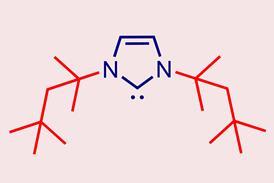Molecular fossils solve evolutionary mystery

Fossilised protosteroids confirm Nobel-prizewinner’s decades-old prediction
Fossilised ‘protosteroid’ molecules discovered in 1.6 billion year old rocks could be signs of a hidden world of ancient organisms belonging to the earliest forms of complex life. The finding suggests that short-lived precursors in modern steroid biosynthesis were once functional end products in their own right, solving a decades-old mystery surrounding the early evolution of eukaryotes.
Primordial precursors of modern steroid compounds were first posited by biochemist Konrad Bloch who helped decipher the biosynthetic pathway of cholesterol, co-winning the Nobel prize in physiology or medicine in 1964. He believed that hundreds of millions of years ago, primordial eukaryotes – organisms whose cells possess a nucleus and which ultimately led to all animals, plants, fungi and algae living today – probably lacked the full sterol biosynthetic pathway. Instead, he suggested they likely generated ancestral intermediates that he dubbed ‘ursterols’, which he suggested were fully adapted end products that evolved towards modern steroids.



